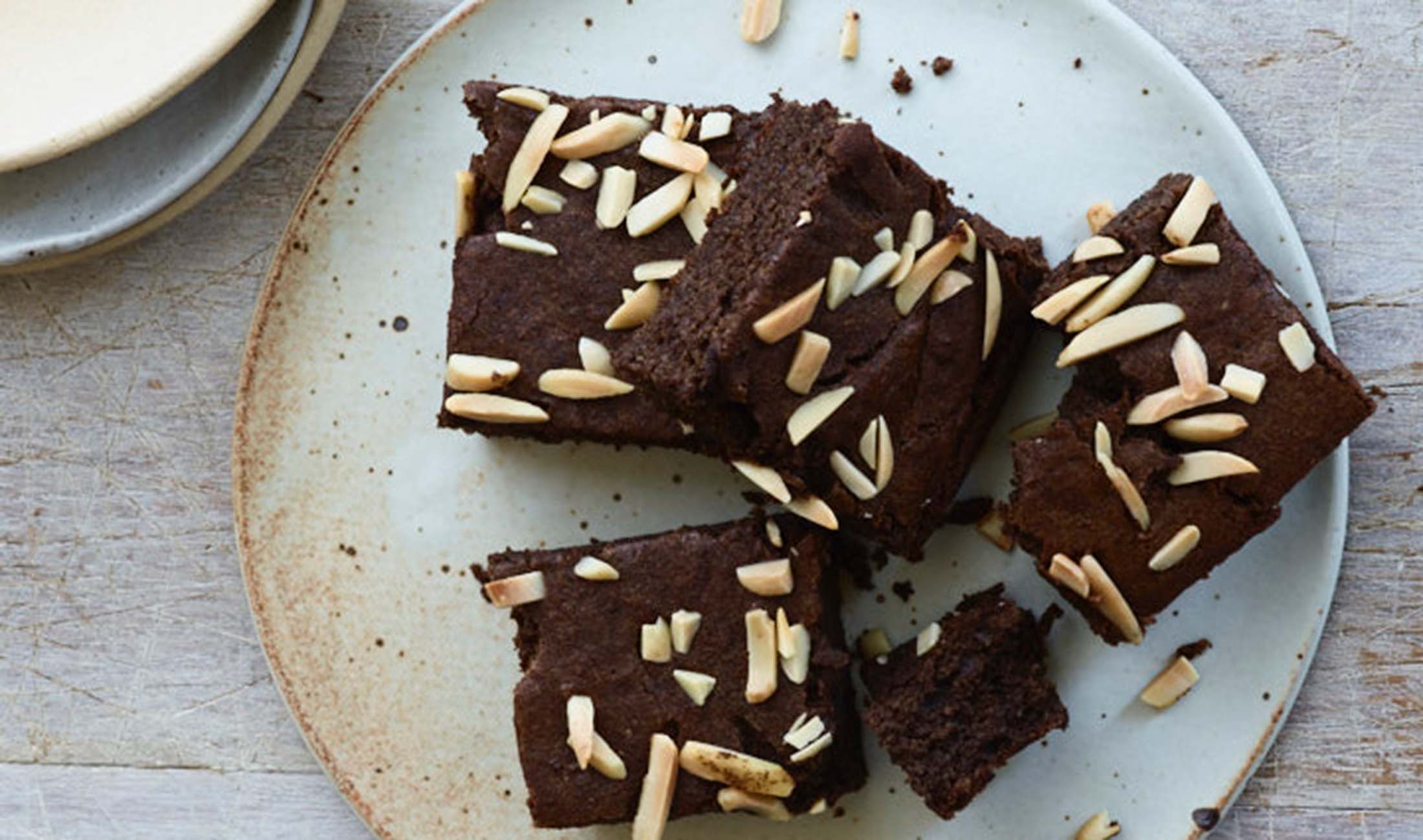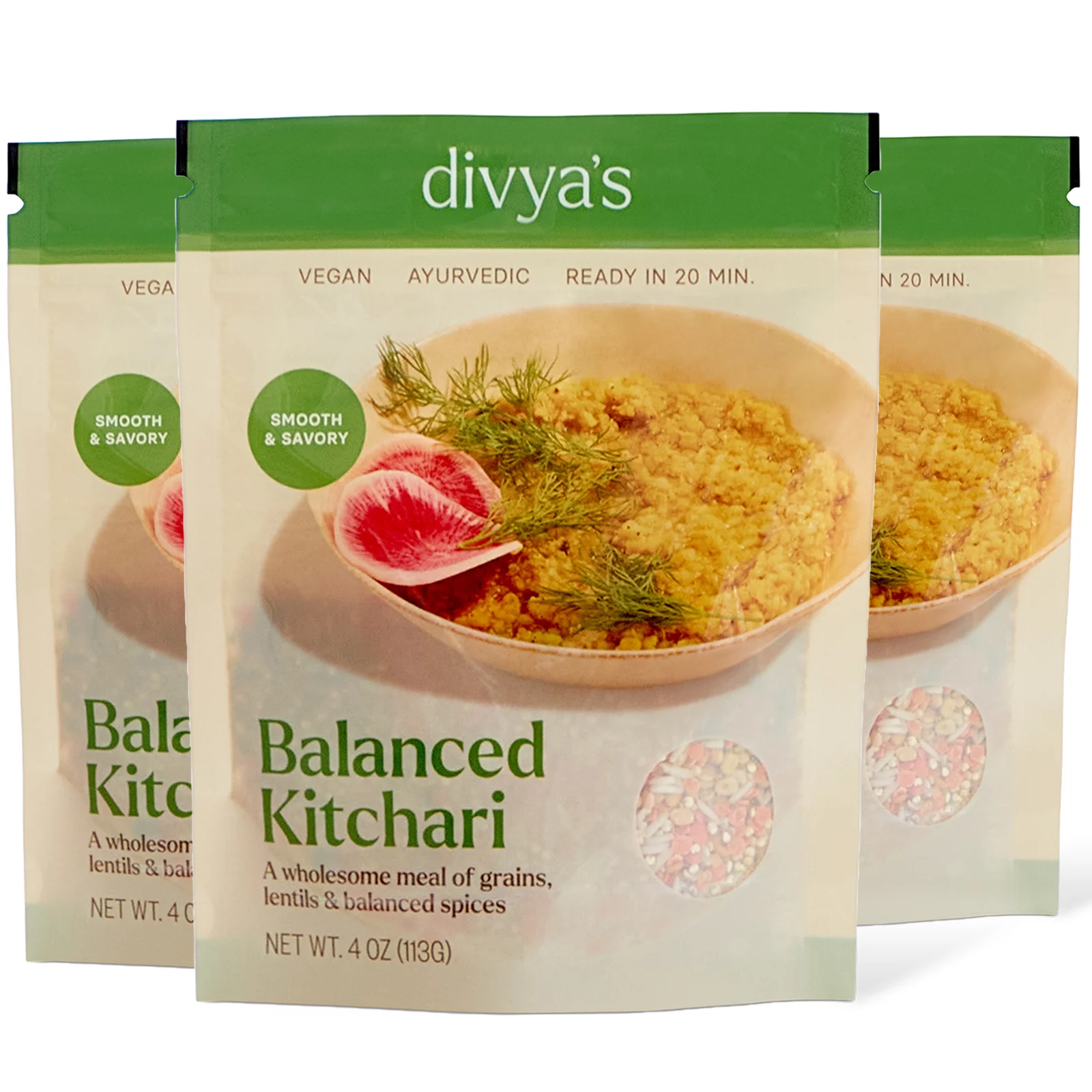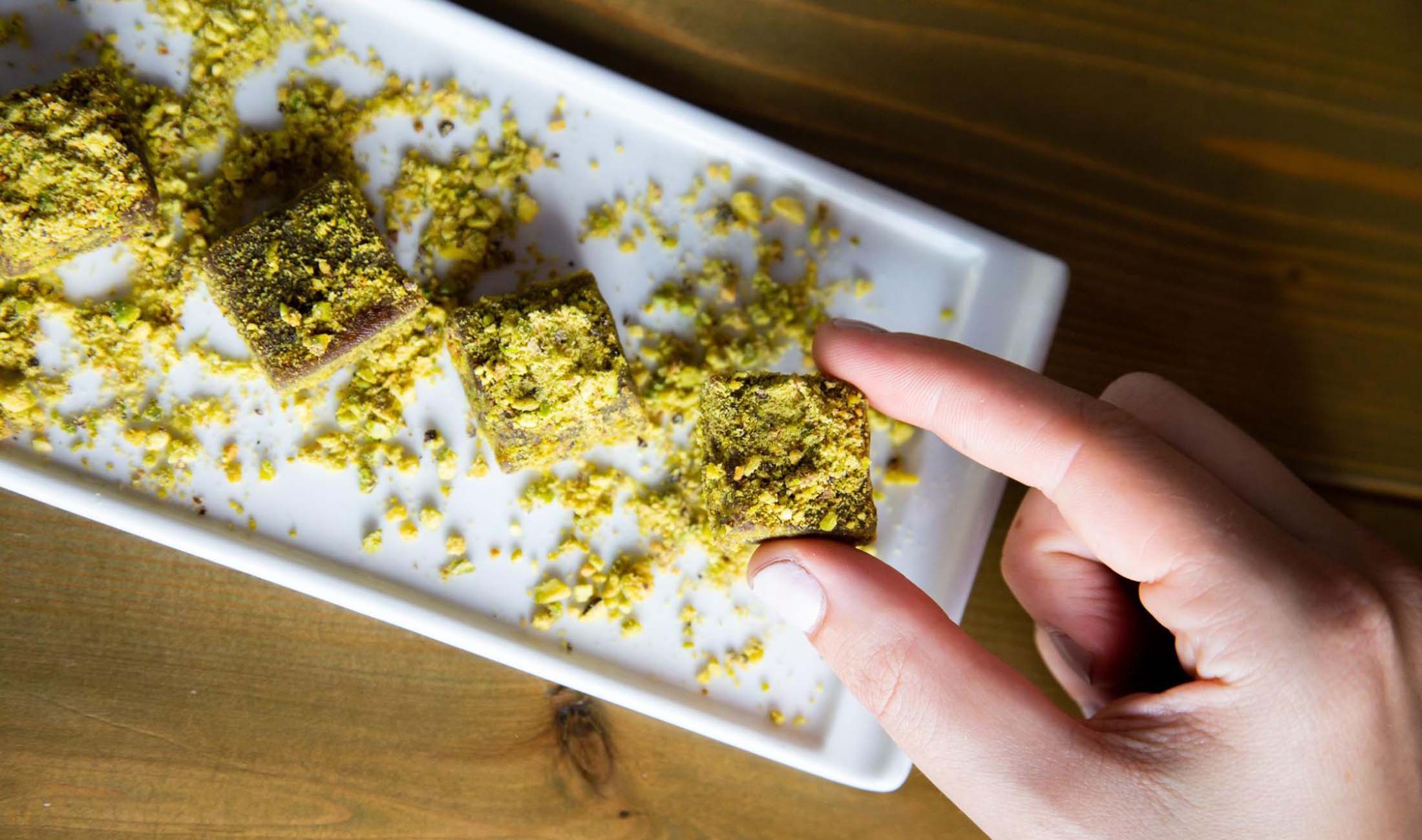Irresistible Buckwheat Cake





If there’s one thing we can be sure of, it’s this: We’re living in profoundly uncertain times. Between on-going military conflicts, climate change, political and social upheaval, and the continued impact of the pandemic, it can feel as if the ground is shifting under our feet.
And it’s ok to feel that way. We’re all experiencing it in one way or another.
But much of this large-scale uncertainty is here to stay, so we need to find reliable ways to ground ourselves. We need inner-stability in order to remain effective at work, with our families, and in our communities.
To that end, here are a few simple ways to ground yourself during difficult times:
Because we eat multiple times a day, food can be a powerful tool for counterbalancing stress and anxiety. If you’re feeling anxious or unfocused, choose grounding foods like root vegetables and fat- and protein-rich foods like paneer and ghee. If you’re experiencing anger and irritability, choose cooling “summer” foods (greens, fennel, summer squash, coconut, lime, etc). If you’re feeling sluggish and weighed down, choose pungent foods with ginger and chile peppers to get you moving.
Any of our kitchari products would be perfect for grounding—the ideal choice depends on how you’re feeling right now. In general, we recommend our Balanced Kitchari, which is supportive for all doshas (body types). We also suggest Garcinia Tea, our house-made Cultured Ghee, and Mom’s Super Spice blend.
Many of us have busy schedules that don’t leave enough time for rest, and this deficit tends to grow when we’re under stress. But rest is essential for our long-term health and productivity, so we need to make room for it at some point.
This one is actually simpler than it sounds. All you have to do is step outside and engage your senses: Try looking up at the clouds, listening to the birds, smelling some flowers, or putting your hand on the trunk of a tree. Give your full attention to your senses and you’ll be amazed by how good it feels.
Sometimes we need a reminder that not everything is falling apart. An evening with friends, a relaxing day with family, or even an hour playing with the kids in our lives can bring a needed dose of joy and lightness. The mind likes to tell us that we don’t have time for play, but we can’t remain steady and productive without it.
Ayurveda recommends maintaining a regular schedule for going to bed, waking up, and eating meals. Consistency in these areas will improve the quality of your sleep and digestion—two factors that are critical for your health, energy, and focus (particularly in challenging times).
This one is self-explanatory. We have a 24-hour news cycle that’s available at the touch of a button. Because bad news sells better than good news, most of what we see is frustrating, frightening, heartbreaking, or all of the above. It’s important to be an engaged informed citizen, but that’s only possible when we’re not overwhelmed. Breaks from the news provide a chance to recover and to refuel with some of the other suggestions on this list.
Movement is medicine. If we’ve been dealing with long-term stress, it’s important to choose an activity that’s gentle and restorative. For that, there’s nothing better than taking a walk (Just remember to take it slow: reducing your speed helps you slow and deepen your breath, quiet your mind, and relax your body).
Prayer, yoga, meditation and other spiritual practices can provide solace and help us transform our own suffering into personal and collective healing. Listening to spiritual teachings helps us understand the polarity and uncertainty of the world, and it supports our practice of equanimity—the ability to remain present, receptive and alert during both good and bad times.
Hopefully you find these suggestions helpful. We recommend picking one or two at a time and trying them for a week. Then you can add or subtract the practices based on what feels good!

In this article, we share simple self-care practices that will keep you steady, healthy and engaged during challenging moments.
From $12.99 — or subscribe and save 15%–

Smooth and savory. For any time of year, or when you’re feeling imbalanced.

In this article, we share simple self-care practices that will keep you steady, healthy and engaged during challenging moments.
From $12.99 — or subscribe and save 15%–



Photo c/o Briana Balducci from Divya’s Kitchen
We all crave sweets from time to time. The question is: what do you do when the urge strikes? Do you indulge? Begrudgingly abstain? Or do you enjoy them fully, but in moderation?
Most importantly: How do you feel after each of the above scenarios? Noticing how you feel after eating sweets (or any other kind of food) is essential for maintaining good health. It allows you to understand your ever-shifting needs and to make the right decisions about what to eat.
Most of the time, we turn to sweets when we’re tired, unmotivated or emotionally drained. Unfortunately, these foods are limited in how much they help and overindulgence can lead to further imbalances.
As an alternative, here are some simple tips for transforming sugar cravings (as well as the root feelings of fatigue and emotional heaviness):
Finally, you can find some excellent teas here at divyas.com that help balance blood sugar after eating sweets and reduce sugar cravings: Gymnema Brew, Vaidya’s Cup, Tripti Tea. Drink any of these after a meal and you will feel energized!

Ayurveda tells us that there’s room for sugar in a healthy diet, but it’s important to choose wisely. The key: Enjoy sweets in moderation and seek healthier alternatives when possible.
$30.99 — or subscribe and save 15%–
Add to cart
Single servings of our complete kitchari collection.

Ayurveda tells us that there’s room for sugar in a healthy diet, but it’s important to choose wisely. The key: Enjoy sweets in moderation and seek healthier alternatives when possible.
$30.99 — or subscribe and save 15%–
Add to cart